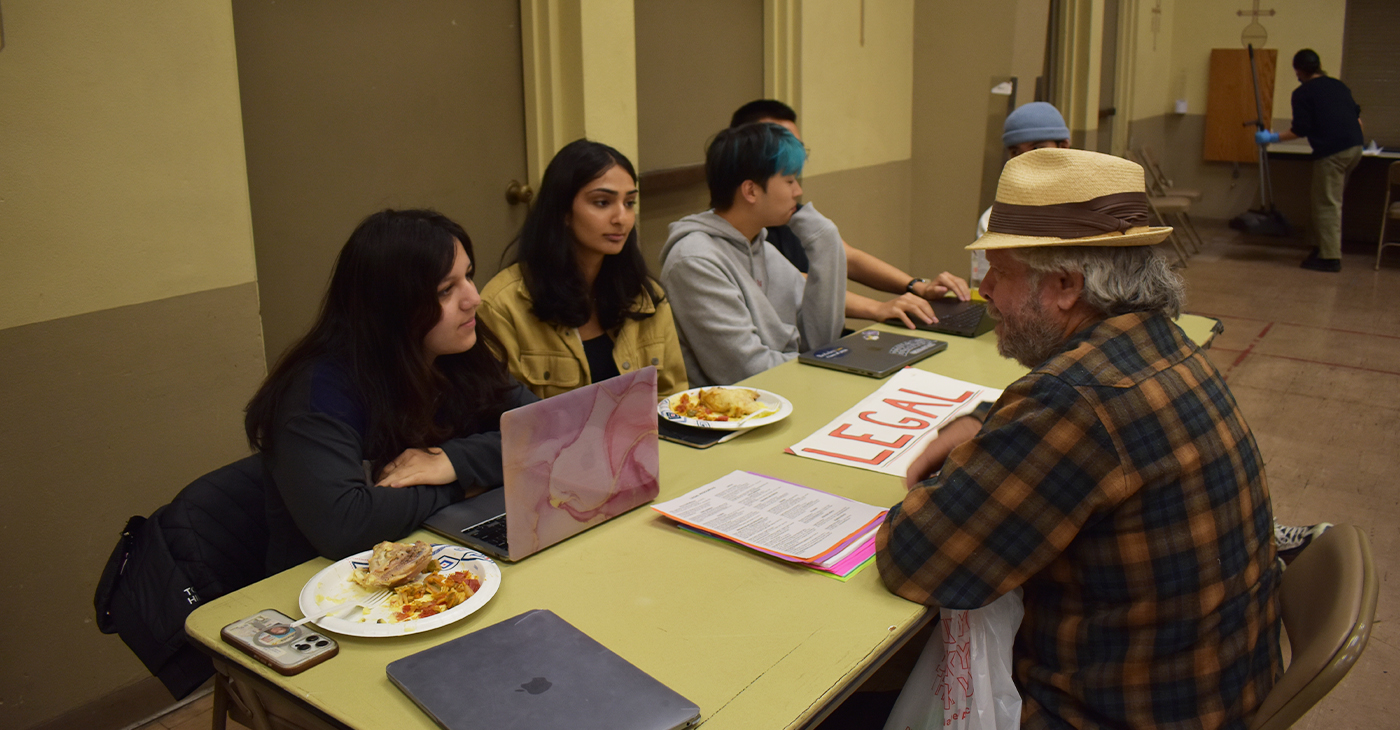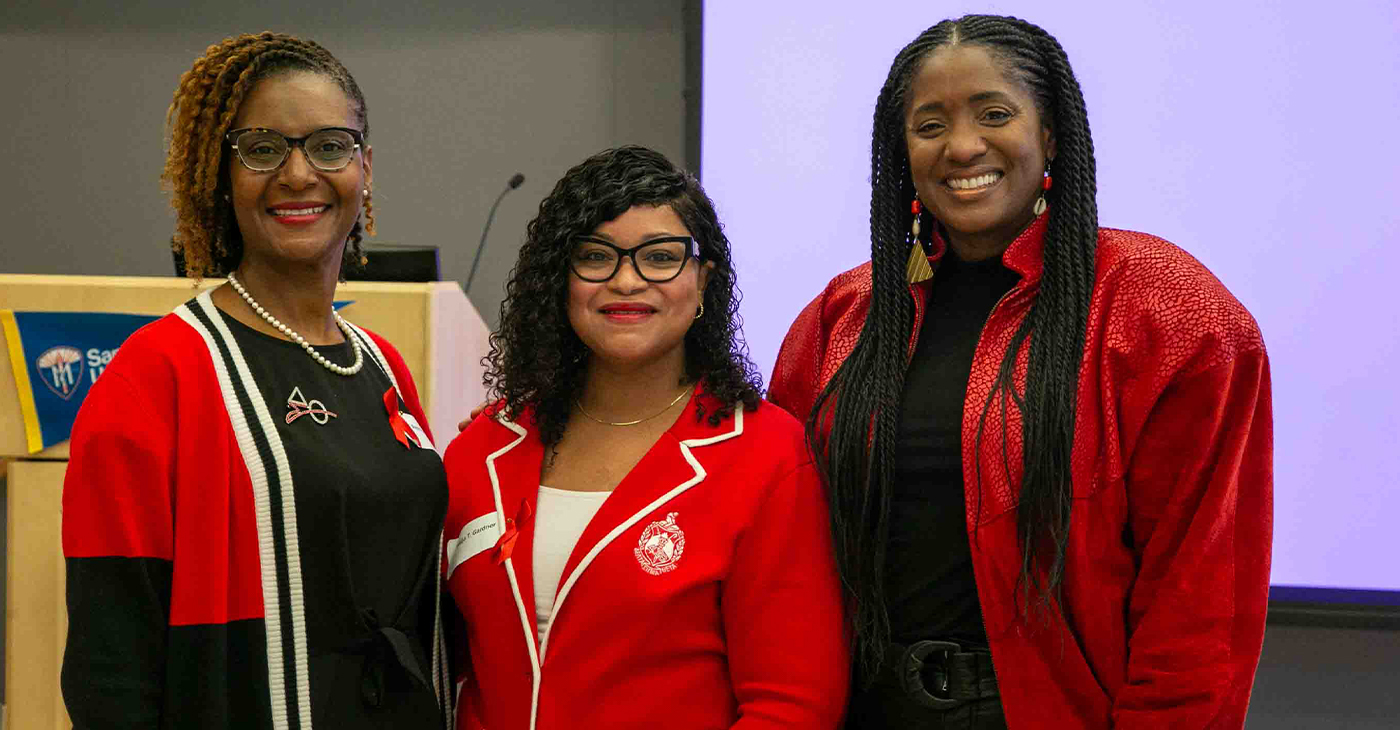Health
Medi-Cal Now Covers Long Term Illnesses
By Manny Otiko, California Black Media
In 1998, San Pedro resident Alaina Howard was diagnosed with Takayasu’s arteritis, a disease that narrows and obstructs the arteries.
Her doctors gave her two years to live. Faced with the difficulty of accepting her diagnosis, Howard also had to deal with frequent fainting spells, caused by the limited flow of blood to her brain.
Seventeen years later, Howard has beaten the odds and is still alive, but she had to go on disability.
Unable to work, Howard — a Pennsylvania resident at the time — was forced to apply for public aid. During that process, she learned her status also qualified her for health insurance through Medicaid.
In 2007, she moved from Pennsylvania to California and enrolled in Medi-Cal, the state’s health insurance program for low-income individuals or families.
Howard says Medi-Cal has been invaluable for maintaining her health, even though she faced a few challenges along the way — like the long lines at her county human services agency. She says the wait was well worth it, though, when she is faced with huge medical bills from frequent hospital visits.
Not being on the hook with collection agencies for bills she cannot afford for services she needs to control her chronic illness, is the best part of the coverage, says Howard.
And even though she still has to pay some out-of-pocket medical expenses for her two children, she can’t imagine what her life would be like without her Medi-Cal coverage.
In addition to providing health care for people with chronic illnesses like Howard, Medi-Cal offers a variety of preventive health care programs, according to Adam Weintraub, a spokesman for the California Department of Health Care Services (DHCS.)
The state’s government-funded health coverage program, which has historically focused on services to children and families, has now expanded to include single men and women without children and disabilities who qualify based on their annual income.
To be eligible, an individual would have to earn less than $16,105 every year or $32,913 for a family of four.
“Medi-Cal provides Californians with access to affordable, high-quality health care, including medical, dental, mental health, substance use disorder treatment services, and long-term care,” Weintraub said.
“Among the programs administered by DHCS are: California Children’s Services; Child Health and Disability Prevention program; the Genetically Handicapped Persons Program; the Newborn Hearing Screening Program; the Family Planning, Access, Care, and Treatment Program (PACT); Program of All-Inclusive Care for the Elderly (PACE); Every Woman Counts; and Coordinated Care Management. DHCS also administers programs for underserved Californians, including farm workers and American Indian communities.”
California is also working to expand the number of people with access to health care through Covered California, a marketplace where individuals whose incomes exceed the threshold to qualify for Medi-Cal can access private health insurance, potentially with financial assistance.
Covered California is part of the federal Patient Protection and Affordable Care Act commonly called “Obamacare” and partners with the California Department of Health Care Services, to provide affordable, health coverage options to Californians.
On the Covered California website, Weintraub says, individuals can find out if they qualify for low-cost, private health insurance or Medi-Cal.
“New enrollment for 2015 coverage is strong and has brought in consumers our marketing and outreach targeted,” said Covered California Executive Director Peter V. Lee. “It is clear Latinos, African Americans and young adults not only heard, but acted on increased advertising and person-to-person outreach.”
To apply for for Medi-Cal, sign up year-round online or by mail. Enroll in person at a local human services agency.
For information about Medi-Cal enrollment, visit www.dhcs.ca.gov/services/medi-cal/pages/applyformedi-cal.aspx
Visit Covered California’s website at www.coveredca.com or call 1-800-300-1506.
This article was produced by California Black Media, a coalition of Black -owned media outlets.
Activism
A Student-Run Group Provides Critical Support Services to Underserved Residents
Those visiting The Suitcase Clinic can get legal advice, sign up for food assistance, receive housing resources, get medical help, or enjoy a hot, fresh meal. They can also get haircuts and foot washes from the student volunteers. Nilo Golchini, executive director of the clinic, said one of the goals for most of the students working there is helping bridge the gap of trust that exists between many unhoused people and the healthcare and social welfare systems.

Part One
By Magaly Muñoz
Every Tuesday evening, the dining hall of First Presbyterian Church fills up with dozens of people eating, laughing and moving from table to table, receiving much-needed services from UC Berkeley students – just a few blocks away from the university’s campus.
Individuals seeking support services can be found in this multi-stationed room on the south end of the church talking to law students, student case managers, or receiving medical attention in a corner by healthcare professionals.
This weekly event is hosted by Cal students through a volunteer-run program called The Suitcase Clinic.
The clinic, founded in 1989, was intended to offer free resources to underserved communities in Berkeley and surrounding cities. The majority of the clinic’s clientele are unhoused or low-income people looking for extra support.
Those visiting the clinic can get legal advice, sign up for food assistance, receive housing resources, get medical help, or enjoy a hot, fresh meal. They can also get haircuts and foot washes from the student volunteers.
Nilo Golchini, executive director of the clinic, said one of the goals for most of the students working there is helping bridge the gap of trust that exists between many unhoused people and the healthcare and social welfare systems.
During their tenure in the program, many of the students say they become strong advocates for homelessness rights.

Visitors of the Suitcase Clinic can receive haircuts and foot washing by student volunteers every Tuesday evening. Photo by Magaly Muñoz.
“We’re also standing in solidarity with them. So, it’s not saying, ‘I’m going to help you, but I’m also going to stand with you,’” Golchini said.
Student volunteers get extensive training prior to working directly with clients. Those interested have to take a semester-long class to become versed in areas such as outreach, intersectionality, how to interact with unhoused people, how to sign people up for social services. and more.
Volunteers then get to pick from three different clinics: General, Women’s, or Youth and LGBTQ+.
The General Clinic is the most popular among visiting residents, while Women’s and Youth/LQBTQ+ have more specialized services for attendees.
The Women’s Clinic has many of the similar services to General, but also includes nail painting, childcare, and massages.
The Youth and LGBTQ+ Clinic offers a safe space for young people navigating living on the streets, with services that include housing referrals, wellness and recreation classes and employment resources.
Golchini explained that it’s important for them to keep these clinics separate because the different demographics experience poverty and homelessness differently than those who visit the General Clinic.

Suitcase Clinic student workers posing for a photo with a frequent clinic attendee. The Clinic is open to Berkeley unhoused and low-income residents who need medical or legal service, or a hot meal. Photo by Magaly Muñoz.
“We’re able to provide spaces where people can come in and feel safe and not feel like they’re constantly worried that something’s going to happen to them,” she said.
An outreach team also visits encampments every other Saturday in the Berkeley area to provide hygiene kits and encourage people to visit the in-person clinic, if possible.
However, Golchini said engagement has been low for some time now due to a recent decision by the U.S. Supreme Court that allows cities to ban and cite people for sleeping on the streets.
She said a lot of their clientele got displaced to other cities over time, making it difficult to stay in contact with the services the Clinic was providing for them.
But that hasn’t slowed down the students at the Clinic, if anything, it has pushed them to do more for the community they serve.
Activism
Delta Sigma Theta Alumnae Chapters Host World AIDS Day Event
With members from Berkeley Bay Area, Oakland East Bay (OEB) and Hayward Tri-City chapters present, the event opened with Oakland City Councilmember Treva Reid sharing data and legislation that has passed to address the safety, health, and well-being of Black women in the state of California. Attendees were able to learn directly from expert guest speakers, including Shimere Harrington from ViiV Healthcare, Barbara Green-Ajufo, an epidemiologist from UCSF Center for AIDS Prevention Studies (CAPS), and Dot Theodore, director of the HIV Care Program Division of Center for Disease Control and Prevention (CDC) for Alameda County.

By Don-Neva E. Johnson and Petrina Alexander Perteet
Special to The Post
The International Awareness and Involvement (IA&I) committees of East Bay chapters of Delta Sigma Theta Inc. proudly hosted a successful World AIDS Day event on Dec.1, bringing together community members, healthcare professionals, and advocates to raise awareness and support the fight against HIV/AIDS.
With members from Berkeley Bay Area, Oakland East Bay (OEB) and Hayward Tri-City chapters present, the event opened with Oakland City Councilmember Treva Reid sharing data and legislation that has passed to address the safety, health, and well-being of Black women in the state of California.
Attendees were able to learn directly from expert guest speakers, including Shimere Harrington from ViiV Healthcare, Barbara Green-Ajufo, an epidemiologist from UCSF Center for AIDS Prevention Studies (CAPS), and Dot Theodore, director of the HIV Care Program Division of Center for Disease Control and Prevention (CDC) for Alameda County.
The speakers provided valuable insights into the current state of HIV/AIDS, advancements in treatment, and the importance of prevention and support.

L-R Petrina A. Perteet, Dr. Natalie Wilson, Don-Neva Johnson, Tracy Diop, Sonji Walker and Takija Gardner were part of the World AIDS Day event. Photo by Kevin Hicks.
“The outcome of this day is more than what we could have hoped for, and we are deeply grateful for the participation of our distinguished speakers and the support of our sponsors,” said Don-Neva Johnson and Tracy Diop, IA&I committee chairs for Berkeley Bay Area and Hayward Tri-City.
“Their contributions helped us create an informative and empowering event for our community,” said event organizer Dr. Natalie Wilson, associate professor of UCSF School of Nursing and IA&I committee chair.
Held at the Samuel Merritt Health Education Center at 400 Hawthorne Ave. in Oakland, the event was made possible by the generous support of sponsors ViiV healthcare, Gilead Sciences, and Good Health WINs. Attendees received gift bags and had the opportunity to engage with educational tables from Gilead, participate in a Q&A session with speakers led by Wilson.
Delta Sigma Theta Incorporated is an organization of college-educated women committed to the development of its members and offer public service with a primary focus on the Black community. We are dedicated to empowering our communities through education, advocacy, and support around the world.
Activism
Outgoing D.A. Pamela Price Releases Report on County Gun Violence Epidemic
The 84-page report is divided into two parts: the Public Health Impact of Violence and the Contribution of Structural Inequalities; and the Public Safety Impact of Gun Violence and the Regulation of Firearms. Each section documents trends in rising gun violence in the wake of the COVID-19 pandemic, with special attention to the rise in gun-related deaths of women and children in Alameda County. Each section advises innovative approaches for the County to address gun violence and build safe communities.

By Post Staff
Criminal Justice Reformer District Attorney Pamela Price, who is leaving office this week after losing a recall election, released a comprehensive report on the gun violence epidemic and public health emergency in Alameda County: “Tackling Gun Violence Epidemic in Alameda County: A Public Health Emergency (2019-2023).”
This report represents an unprecedented collaboration between public safety and public health partners and provides data and recommendations to guide the County’s continued work to reduce violence while advancing justice reform.
The 84-page report is divided into two parts: the Public Health Impact of Violence and the Contribution of Structural Inequalities; and the Public Safety Impact of Gun Violence and the Regulation of Firearms.
Each section documents trends in rising gun violence in the wake of the COVID-19 pandemic, with special attention to the rise in gun-related deaths of women and children in Alameda County. Each section advises innovative approaches for the County to address gun violence and build safe communities.
“Between 2019 to 2023, an average of three residents were killed by firearms each week in Alameda County, and behind every statistic is a shattered family and community,” said Price.
“Under my administration, the DA’s office has taken bold steps to combat gun violence while promoting equity and healing for survivors,” she said.
The report highlights strategies for keeping guns out of the hands of dangerous people. Last month, the DA’s office secured a $5.5 million grant from the California Judicial Council to help improve compliance and case management for gun cases and gun relinquishment orders —the removal of guns from people prohibited from possessing a firearm – with law enforcement and court partners.
This effort builds on Price’s work in 2023 and 2024 in attacking the gun violence epidemic.
“We launched an innovative Gun Violence Restraining Order Outreach Project to educate communities about the availability of tools to remove guns and ammunition from people who are a danger to themselves and others and the intersectionality of domestic violence and gun violence and convened gun violence roundtable conversations with our law enforcement partners and collaborated with the Alameda County Public Health Department to produce this comprehensive report,” she said.
“We supported Oakland’s CEASEFIRE program through its transition and implemented a pilot Mentor Gun Diversion Program with our collaborative court partners, offering non-violent youth in possession of a gun pathways to interrupt the potential for escalating harm.” added Price.
-

 Activism4 weeks ago
Activism4 weeks agoOakland Post: Week of November 20 – 26, 2024
-

 California Black Media3 weeks ago
California Black Media3 weeks agoCalifornia to Offer $43.7 Million in Federal Grants to Combat Hate Crimes
-

 Activism4 weeks ago
Activism4 weeks agoAn Inside Look into How San Francisco Analyzes Homeless Encampments
-

 Black History3 weeks ago
Black History3 weeks agoEmeline King: A Trailblazer in the Automotive Industry
-

 California Black Media3 weeks ago
California Black Media3 weeks agoCalifornia Department of Aging Offers Free Resources for Family Caregivers in November
-

 California Black Media3 weeks ago
California Black Media3 weeks agoGov. Newsom Goes to Washington to Advocate for California Priorities
-

 Activism3 weeks ago
Activism3 weeks agoOCCUR Hosts “Faith Forward” Conference in Oakland
-

 #NNPA BlackPress4 weeks ago
#NNPA BlackPress4 weeks agoPRESS ROOM: Clyburn, Pressley, Scanlon, Colleagues Urge Biden to Use Clemency Power to Address Mass Incarceration Before Leaving Office






















































